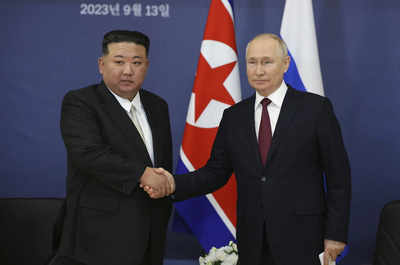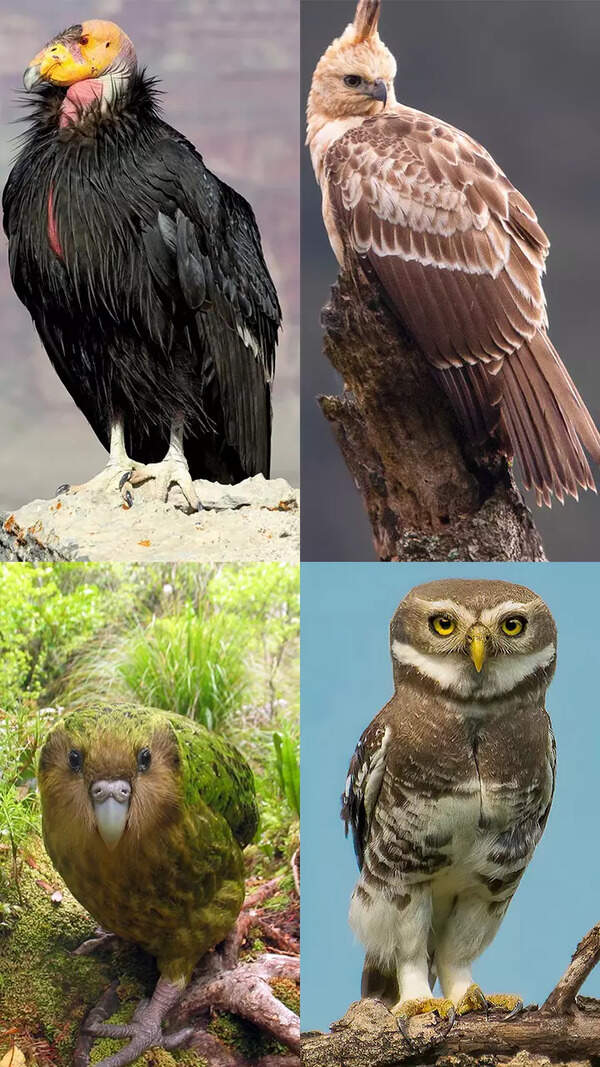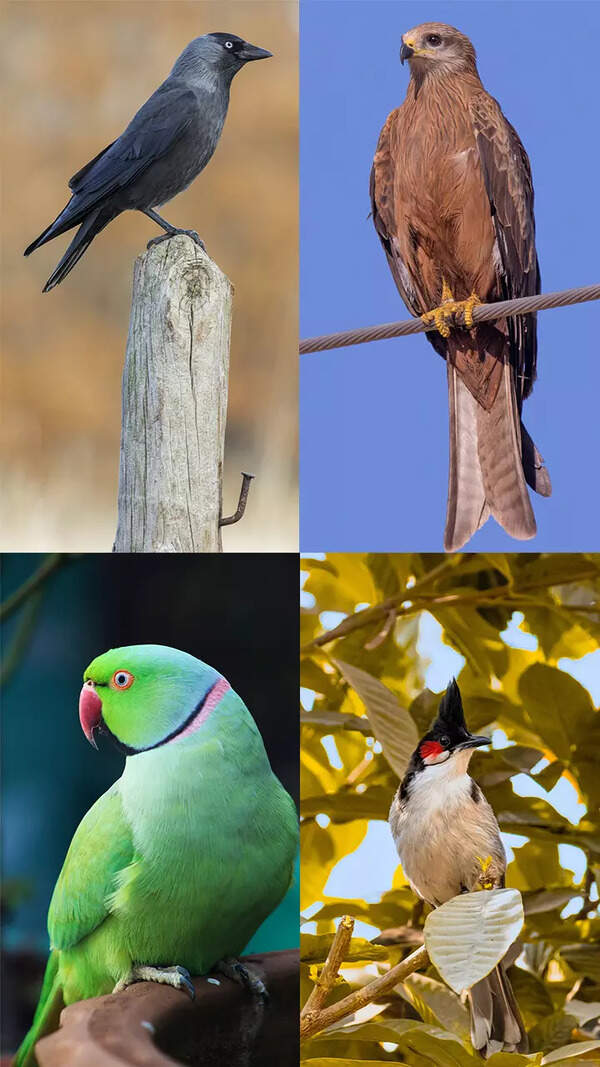- News
- World News
- Europe News
- Explained: Why Russian President Vladimir Putin is visiting North Korea
Trending
Explained: Why Russian President Vladimir Putin is visiting North Korea
In a letter published by North Korean state media on Tuesday, Russian President Vladimir Putin vowed to establish trade and security systems with North Korea that are independent of Western influence. The letter, which appeared in the Workers' Party mouthpiece, Rodong Sinmun, came ahead of Putin's anticipated visit to the country. Putin emphasized the strong ties between Russia and North Korea, stating that over the past seven decades, the two nations have cultivated a relationship founded on "equality, mutual respect and trust."

Putin and Kim bromance has blossomed after Russia's invasion of Ukraine.
Vladimir Putin, the President of Russia, is visiting North Korea this week for the first time in 24 years, marking a significant deepening of relations between Moscow and Pyongyang. This visit underscores the burgeoning partnership between the two nuclear-armed states, particularly in the wake of Russia’s invasion of Ukraine. North Korean leader Kim Jong Un, who has referred to their relationship as an “unbreakable relationship of comrades-in-arms,” extended the invitation during his visit to Russia’s Far East last September.
Why it matters
What they are saying
Here is all you need to know about growing Russia-North Korea ties:
What has North Korea gained from this partnership?
What might Russia offer North Korea in return?
What are the long-term prospects of this relationship?
What are the concerns of the United States and its allies?
How does China fit into this relationship?
(With inputs from agencies)
Why it matters
- The Economist has termed the growing Russia-North Korea ties as "Vladimir Putin’s dangerous bromance with Kim Jong Un". As per the Economist, the
Putin-Kim bromance has blossomed thanks to geopolitical shifts. - Kim turned away from talks with America following the failed summit in Hanoi and began making fresh overtures to Russia. The response was lukewarm—until Putin’s full-scale invasion of Ukraine floundered and Russia came to need munitions, one of the few things Kim’s regime has in abundance.
- However, this realignment extends beyond mere arms deals, as North Korea helps Russia complicate American strategy in Asia and undermine multilateral institutions.
- Jenny Town of the Stimson Centre, an American think-tank, told the Economist: “It’s a mistake to think about it simply as an arms deal.”
- “It is the biggest strategic opportunity for North Korea since the end of the Cold War,” said Ankit Panda of the Carnegie Endowment for International Peace.
- “The new Russian love with North Korea is shallow and artificial,” argued Andrei Lankov, a Russian expert on North Korea based at Kookmin University in Seoul.
- Ukrainian foreign minister Dmytro Kuleba characterized the trip as a "lonely bromance" between Putin and Kim.
How has this partnership affected international dynamics?
- North Korea’s alliance with Russia complicates American strategy in Asia and undermines multilateral institutions. Russia’s veto of a United Nations resolution extending the mandate of the Panel of Experts on North Korean sanctions in March highlighted this cooperation. This relationship also deters South Korea from providing direct lethal aid to Ukraine. Fyodor Tertitskiy of Kookmin University noted, “It’s not a bilateral relationship—big brother is always watching from Beijing.”
- North Korea has benefitted from trade with Russia, which has helped stabilize its economy amidst years of sanctions and the Covid-19 pandemic. Summits with Putin have bolstered Kim’s image domestically. Ankit Panda of the Carnegie Endowment for International Peace highlighted, “It is the biggest strategic opportunity for North Korea since the end of the Cold War.”
- Speculation surrounds what Russia might provide in return for North Korean arms. South Korea’s government believes North Korea’s wish list includes nuclear weapons designs, re-entry vehicles for intercontinental ballistic missiles, and technology related to satellites, submarines, and hypersonic weapons. Putin has already given Kim a Russian-made luxury limousine, but sensitive military technology transfers have yet to occur.
- The partnership is likely to last as long as the war in Ukraine continues, but it may not endure beyond it. Lee Sang-hyun of the Sejong Institute remarked, “The calculated convergence of national interests can shift if the circumstances change.” Russia’s need for North Korean munitions may diminish as its own arms production ramps up.
- Washington is troubled by the deepening relationship between Russia and North Korea. US state department spokesperson Matthew Miller said, “North Korea has supplied dozens of ballistic missiles and over 11,000 containers of munitions to Russia.”
- There are concerns about what Russia might provide North Korea in return, whether it be hard currency, energy, or military technology. Deputy Secretary of State Kurt Campbell emphasized the need for vigilance, saying, “We don’t know. But we’re concerned by that and watching carefully.”
- China’s role in the Russia-North Korea relationship is significant. Beijing’s influence can shape the depth of cooperation between Russia and North Korea. Fyodor Tertitskiy pointed out, “Big brother is always watching from Beijing.” While China supports North Korea as a stable buffer state, closer military ties between Russia and North Korea could threaten these aims.
End of Article
FOLLOW US ON SOCIAL MEDIA











